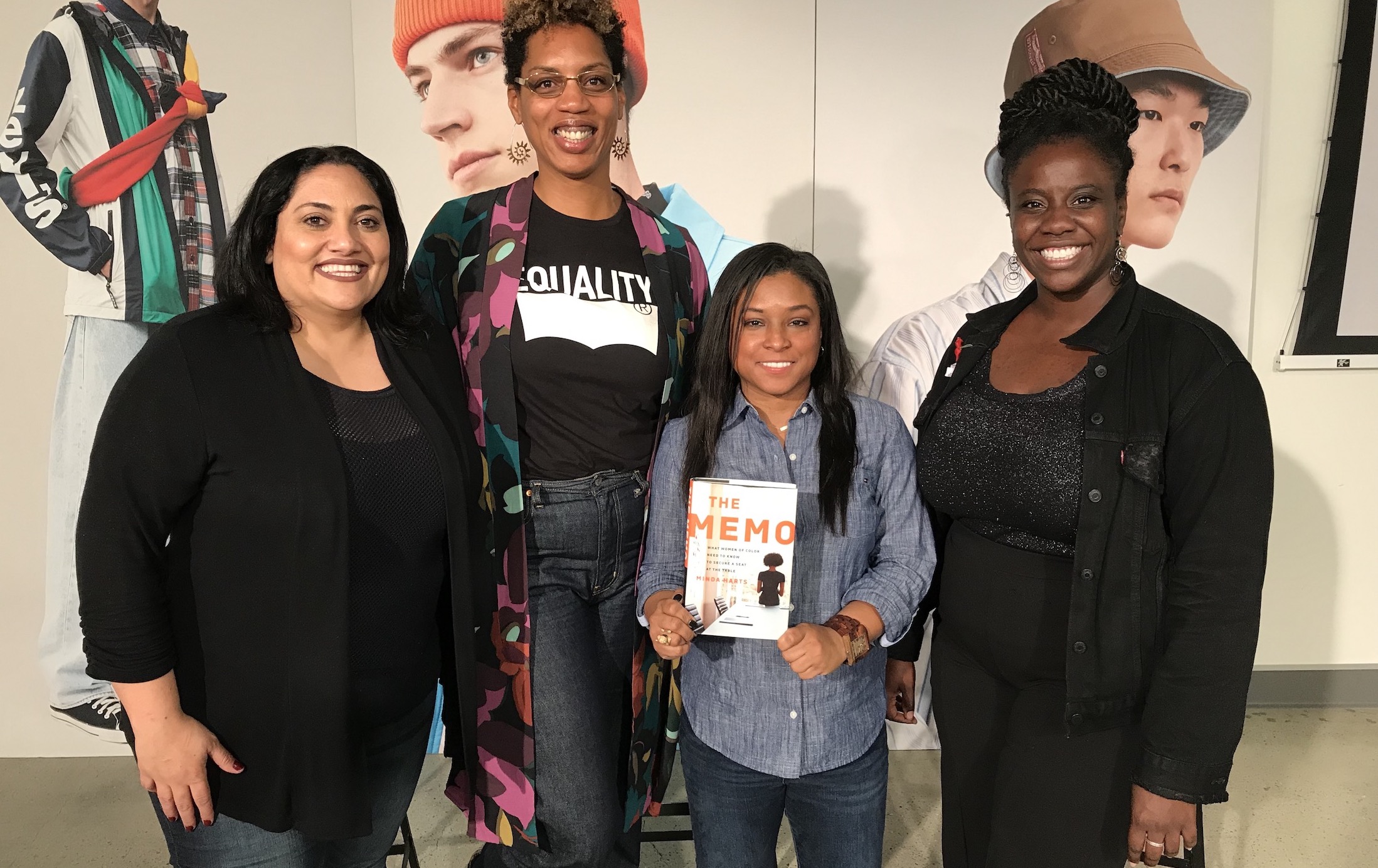A few years ago, Minda Harts, like many professional women, looked to Sheryl Sandberg’s bestseller Lean In for inspiration and advice on how to be empowered in her career. Instead of feeling connected to a unifying mantra, however, Minda felt a disconnect — she realized there was a gap between her experiences as a woman of color in the corporate workplace and the advice being espoused.
That personal disconnect led Minda to follow the advice once shared by the late, great Toni Morrison – “Write the book you want to read.” This August, Minda released The Memo: What Women of Color Need to Know to Secure a Seat at the Table, which Amazon Reviews dubbed the “Lean In for women of color: A no-BS look at the odds stacked against women of color in professional settings, from the wage gap to biases and micro-aggressions, with actionable takeaways.”
Minda visited our San Francisco headquarters this month to talk to employees about her work and what it really means to create an equitable workplace.
What do you think we’re not talking about enough when it comes to an equitable workplace?
I think we don’t talk about the fact that not everybody experiences the workplace the same. Yes, we all come to the same building, but some of us experience it completely different than others. And I think that it will require us to relationship-build in a different way. The future of work, we talk a lot about that, right? But will the future just be much of the same or will it be a little different? It’s going to require each of us to close that empathy gap and get to know the people that we work with. We don’t have to all be best friends forever at the end of the day. But knowing each other in a way that we all can move forward and support each other will create a better outcome and it will dismantle those toxic environments.
How can we close that empathy gap in our workplace?
I think it’s hard to close an empathy gap that you don’t know exists. Even though we like to think we talk about race, for example, we really don’t talk about it in a way that moves it forward. I know a lot of companies are buying the book for their employees and then creating like a book club out of it so that they can have these conversations. I encourage everyone to read it, especially those not of color, because you would then know what some people might be experiencing that you weren’t aware of before. I have so many inquiries coming in saying, “Oh my God, Minda, it was such a hard read but a necessary read. Like I had to look myself in the mirror and say, ‘Wow, I’ve been part of the problem too.’”
What advice you have for allies and how they might best support women of color?
I think the next step for allyship is going to require action. One of the reasons why I wrote the book is that a lot of allies don’t know what it’s like for a black woman like myself to come into a workplace where I’m one of few or the only one in the room. So how can you help me if you don’t understand what it’s like to be me?
Being an ally is going to require us to educate ourselves. If you’re a manager, you’re going to be managing diverse teams, so you need to understand what someone like myself or who might identify in a different way might be going through to get the most out of them and their talent. I like to live my life through the motto of “success is not a solo sport.” In order for the future of work to be equitable for all, it’s going to require each of us to have that emotional intelligence on how to support our teammates the best.
What is the one piece of advice you would hope someone takes away from your work?
I think this advice goes for men, women, gender nonconforming, however you might identify, but I think that the core of it is, make sure that you’re making work work for you. You have to figure out what you want out of work and whether you want that seat at the table. And it’s going to require you to invest in yourself, whatever that might mean. It’s going to mean finding the words and articulating your value and quantifying your work to those who you report to. Sometimes we leave our careers to someone else to figure out, but we can’t be ambivalent about our own careers.







